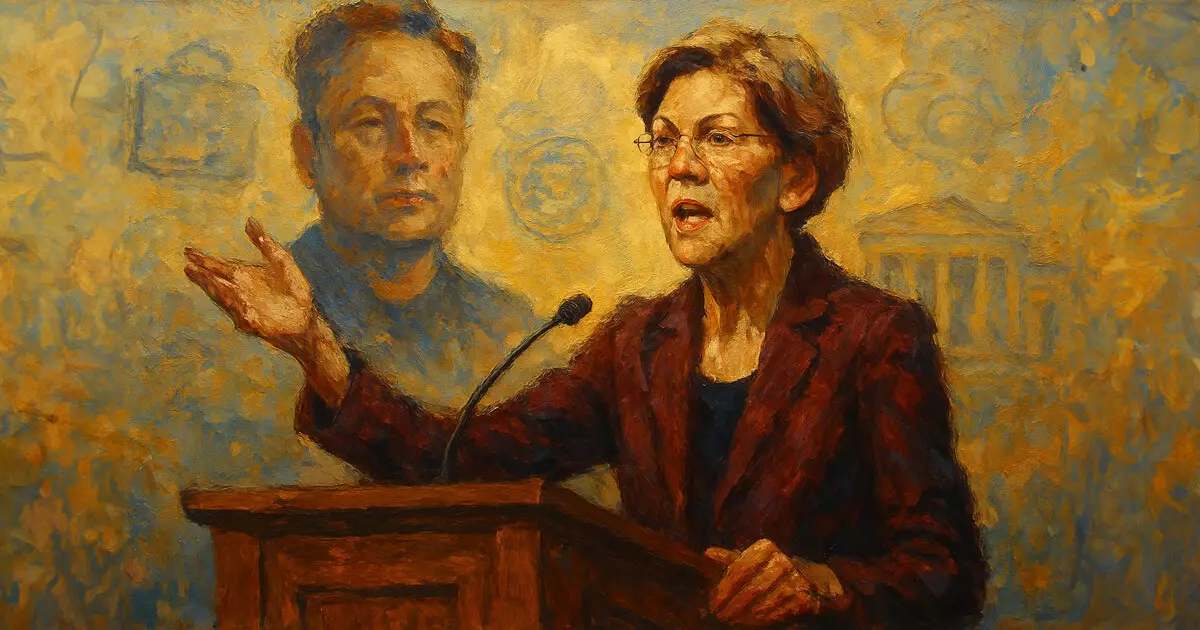The recent introduction of the Special Government Employee Ethics Enforcement and Reform (SEER) Act, spearheaded by Senator Elizabeth Warren, shines a critical light on a glaring loophole in the U.S. governance structure. This bill aims to enforce accountability and transparency for Special Government Employees (SGEs), including high-profile figures like Elon Musk and David Sacks, who primarily serve in advisory roles while maintaining their lucrative ties to the private sector. While the intent of this legislation is commendable, it could represent an escalation in the ongoing battle to rectify conflicts of interest that mar the integrity of our political sphere.
Why SGEs Are a Bad Idea
The existence of SGEs is troubling, particularly in an era when public trust in government is at an all-time low. Allowing individuals to serve as part-time federal advisors for up to 130 days a year without stringent disclosure requirements raises alarm bells. This “flexibility” creates fertile ground for unethical behavior, especially for SGEs who are likely to benefit financially from government contracts. It is hard to ignore that someone like Elon Musk, who stands to gain millions from his ties to the federal government, is not subjected to the same rigorous scrutiny as full-time officials. This duality of roles leads to a moral hazard that can’t be overlooked.
A Needed Transformation in Governance
The SEER Act seeks to redefine the ethical landscape surrounding SGEs by expanding existing rules and imposing stricter conditions. According to the proposal, SGEs will be mandated to disclose financial interests beginning from their 61st day in office, with enhanced conflict-of-interest restrictions tailored to minimize corporate influence in governmental decision-making. This is a necessary and urgent reform. The push for more public oversight—not just through mere self-disclosure but by institutionalizing transparency—could stabilize the fragility of trust that citizens have in their government.
The Power of Public Oversight
One particularly promising aspect of the SEER Act is its requirement for the Office of Government Ethics to approve all conflict-of-interest waivers for SGEs, with those waivers being publicly accessible. In a political environment often mired in secrecy, this provision holds the potential to alter how the public engages with and perceives its advisors. In a world where news cycles amplify scandals and ethical breaches, stripping down the wall of opacity can cultivate a culture of accountability.
Backed by Diverse Coalitions
The support the SEER Act enjoys from a broad coalition of advocacy and watchdog groups—including Public Citizen, POGO, and the American Federation of Government Employees—indicates that this proposal is not merely a partisan initiative. It is a collective effort recognizing the urgent need for reform. While criticisms regarding the “overreach” of governmental control will undoubtedly surface, the overwhelming backing signifies broad discontent with the current ethical landscape and highlights a unique convergence of interests toward a more transparent future.
In pursuit of a typically liberal ethical revitalization, the SEER Act could potentially curb the unchecked crossover between corporate power and governmental advisory roles. By diminishing ethical gray areas and enforcing accountability, this legislative initiative stands to safeguard the integrity of public service against the tide of corporate influence.

